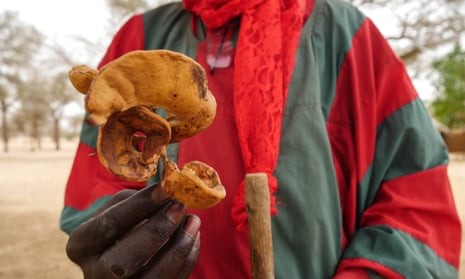Is there any hope for the environment? We regularly get this question in emails from readers of this series. In the face of weekly stories on how humans have doomed our planet, some feel action is pointless. We’re certainly not here to distract from the scary news about our climate; it deserves everyone’s attention and we must make big changes now. But it’s arguable whether people are likely to act without hope.
This week we found one tale of hope on the border of the Sahara desert. We also looked at a possible antidote to social isolation among retirees (another frequent subject of reader emails), and a tale of solidarity and humanity from the Balkans.

Niger is one of the poorest countries in the world, and farmers there live with the threat of their land being swallowed by the desert. But now the land is fighting back: tens of millions of trees have emerged in recent decades, nurtured by thousands of farmers and revitalising the soil. Ruth Maclean reported from Droum on the great African regreening.
As living in cities has become more expensive than ever, co-housing has emerged as a potential solution for people desperate for decent and affordable living space. But for baby boomers approaching retirement, co-housing is appealing for other reasons: amid social changes that have left families more divided, can a mix of independent and communal living be an answer to loneliness? Anna Leach went to Oakland to visit to meet residents at two co-housing communities.

In Bosnia, Shaun Walker reported on a war veteran who has turned his cafe into a free kitchen for migrants. Bosnia has become part of Europe’s migration route, and while migrants and refugees have been treated harshly across the border in Croatia, they’ve found more sympathy among Bosnians who suffered their own hardships not so long ago.
And in Liverpool, Aditya Chakraborty met the man who makes thousands of free meals for children during school holidays, and who wants to build an alternative to food charity.
What we liked
This Yale 360 piece looks at an unlikely solution to the problem of methane produced by cattle, a significant contributor to global warming.
What we heard
The nearest equivalent I’d be able to go for would be residential mobile home sites, and I wish local councils or housing associations ran them, because the main problem there is the insecurity and cost when they are run privately, often by firms that are exploitative. An extra benefit of mobile home sites, for older folk like me, is that they could be located in places that had few jobs but still had basic services, or where an area needed more residents in order to keep or bring services. And then my urban flat would be available for someone who needs to be in or near the city.
Commenter tenthred writing below the line about co-housing
Where was the upside
In New Caledonia, home to one of the planet’s last near-pristine coral reefs, which this week voted to widen protections of the reefs.

